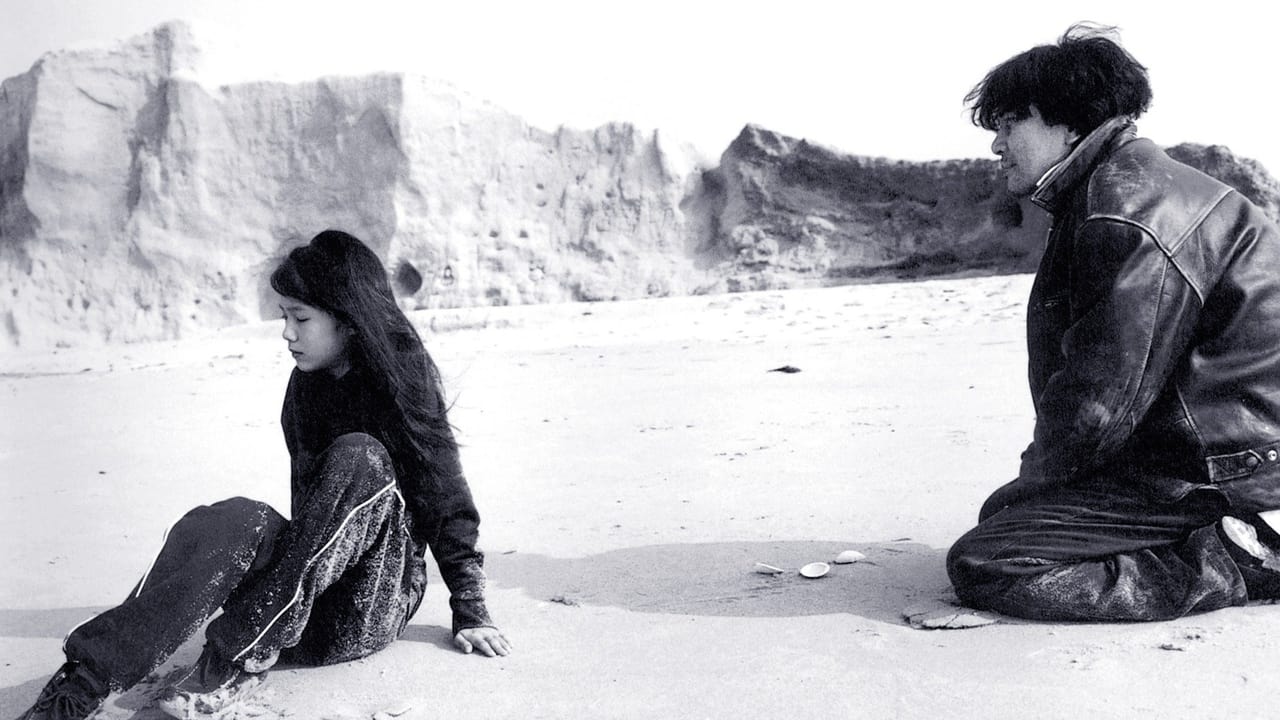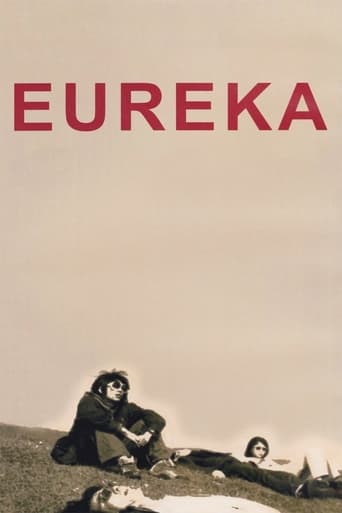GamerTab
That was an excellent one.
Voxitype
Good films always raise compelling questions, whether the format is fiction or documentary fact.
StyleSk8r
At first rather annoying in its heavy emphasis on reenactments, this movie ultimately proves fascinating, simply because the complicated, highly dramatic tale it tells still almost defies belief.
Keira Brennan
The movie is made so realistic it has a lot of that WoW feeling at the right moments and never tooo over the top. the suspense is done so well and the emotion is felt. Very well put together with the music and all.
CountZero313
There is an excellent 100-minute film in Eureka, but this monster is an exercise in tedium that will appeal only to a particular niche of film buffs. Other reviewers point out that this is mainly a visual experience, with movie tributes to the likes of Hou Hsiao-Hsien for the anoraks to delight in spotting. But nobody seems able to tell me WHY it is so long. There is one scene where the bus pulls out of a diner's car park, and drives up the road that extends into the distance, over the hill and out of sight. Fixed camera wide shot, no cuts. It takes 2 minutes 40 seconds - why? We know where the bus is going, and the frame is not particularly interesting to look at. Maybe there is a deeper meaning to such anti-editing statements that I am missing, but it looks like Aoyama just couldn't be bothered cutting the thing properly. Two stars for the cinematography.
Kruttik Aggrawal
Probably the only thing that has happened to me which i cannot express in words. Maybe thats what the director 'Shiniji' felt and instead of trying to express is it in heavy-Hollywood-dialogs syndrome, he chose the absolutely pinnacle and quintessential form of communication- ...... If you are looking for the definition of that art, you wouldn't just find,because it doesn't exist. You have to see this movie to venture into the world which is way beyond cinema and story-telling.Each character has just defied the very fabric of artificial situations that are cinematic and have stepped into the horizons of real world much real that what we see now. Shiniji's brilliance is not only in the way he picked up the situation and silhouetted it with ever so beautiful backdrop but also in that fact that he hasn't compromised on the lines of letting the movie talk with its aura of silence. Many great directors would have been tempted to use the brilliant characters of Naoki and Kozue to speak up their frustration(a usual ploy in American and European Cinema) to reassure their directorial capabilities, but Shiniji's belief in the movie and its characters was much more intense than both his audience and himself.Now a little about the movie. Eureka centrally addresses the condensed emotions of people who go through a catastrophe which might not be fatal physically but is absolutely draining mentally. The eventual darkness of body and mind that leads such people to imagine heinous crimes like murder without knowing the true essence of its legitimacy. It deals with complete disintegration of human psyche to unwanted darkness. But it also shows the inevitability of human victory of life and happiness over death and darkness. Eureka tours the human road-map of complete disillusionment and back to reclaim its lost grounds.Naoki and Kozue though being kids display a true situation that can drive even kids to craziness. Though not being dumb, words have not been their respite. The killing emptiness within woven with their apathetic vocals drilled them to their core and they became immune to popular practice of existence. Talking and involving with others were a waste, for nothing in the world could bring them what they lost. And if you ask what they lost, they cant describe it, I cant describe it, and neither can Shiniji. We can only feel it.Makoto together with the kids was also a subject to the catastrophe. It hit him so hard mentally that he lost himself to isolation. But he regrouped and returned to his home just to find that things have changed around him, he could not justify but accepted it because he could find himself a reason to it. He visits the kids and they form a small family in which no one has to say that they care for each other, they just have to feel.I can go on for this movie for the rest of my life but if you are alive you will see it.
ButaNiShinju
A poverty of ideas on almost every level is what characterises this film. The stylishness of the cinematography and the very competent acting of Yakusho Koji cannot mask this fact over 3.5 hrs. Even those with an ardent interest in post-traumatic stress disorder will find it hard to bear.
frankgaipa
Must be over a year. Rooms of the house, locations, the characters and their mute-and-not choreography remain with me, but somewhat ajumble. The violence that precipitates and defines "Eureka's" story feels random. The shooter's apolitical. In the limited frame of the film, he's self-motivating, whatever his back story. So comparisons to 9/11's strike at politically symbolic targets, or even to the Aum incidents, seem facile. Don't be frightened by the film's length, unless you're just not a film person. In comparison, Jean Eustache's "La maman et la putain" lasts a lifetime. Maybe because its Paris no longer quite exists, leaving "Putain's" world is like being wrenched from a dream. A dream interrupted is a trip out with no trip back. Make any unfamiliar journey and return, especially on foot, the trip back feels shorter because, even by their reverse side, you know the landmarks. The world's so homogenized now, no matter where you live no shot in "Eureka" can be unfamiliar. "Eureka's" all trip back. Everything registers. Time rushes. By placing color exactly where he did in this black and white film, Aoyama tells me he knows this.I shouldn't stick my neck out on Japanese stuff, but the kids' young uncle Akihiko's name sounds Autumnal for its "aki.""Eureka" contains Koji Yakusho's most successfully complex role. A touchpoint for this performance is his more simply written character in Kiyoshi Kurosawa's "License to Live."

